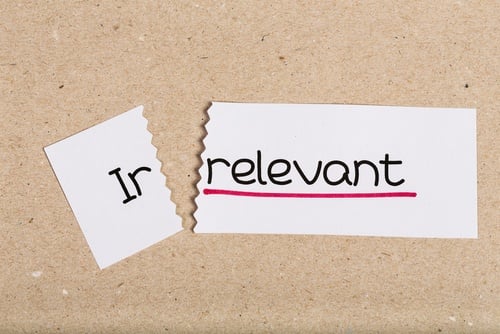
Every person has a unique story to tell and a distinctive way of telling it—so does every brand. Gone are the days when marketing your brand and your products was all about the stuff that you make; now it’s about the story you tell. However, your brand story is not what you tell people but what they believe based on the entire message your brand conveys about itself.
Differentiate your brand in a crowded market
If you aspire premium status for your brand, you need a good story. As brand strategy consultants, we regularly advise our clients that people love a good story but, more importantly, people buy from a good story. Your story makes the countless decisions that you make around value and luxury stick in the mind of discerning consumers. Are you an ethical choice? Then use your story to attract like-minded audiences and improve the lives of those you serve.
Show how customers’ lives can change
Users don’t buy ‘value propositions’; they buy something bigger that helps them in their lives. The most important element of a story, therefore, is showing “what your customers can do now because of your product or service that they couldn’t do before?” That’s the fuel. Your brand must make your customer look good, feel better, perform well, and make them a hero.
What people really buy, then, is aspirational—the hope of improvement. While saving money can be a valid ‘value proposition,’ there are usually many more critical human motivations driving customer purchasing behavior: enhanced credibility and reputation, recognition, security, well-being, reassurance, etc.
IBM’s Watson is detecting cancer
In Australia, every 6 hours, one person will die from melanoma, an insight that inspired global technology giant IBM’s mission to use AI to ‘outthink melanoma’ and champion early detection of the deadliest cancer down under.
Watson’s cutting-edge AI technology is able to detect melanoma with 31% more accuracy than the naked eye – something that can significantly affect a person’s chances the chances of survival.
Launched during peak season at one of Australia’s most iconic beaches near Sydney, Bondi Beach, Australians simply stood in front of a mirror and were analyzed for melanoma risk factors. Watson examined and determined elements including age, gender, and sunscreen coverage. If any risks or irregularities were detected, the participant was referred to an on-site specialist for further evaluation and treatment.
“Over a single weekend, more than 800 people were helped, with 22% being referred for a follow-up appointment.”
A product story is always about the people who use what you sell and how it makes their lives better. Products come and go; a deep commitment to changing customers’ lives for the better – something larger and more significant than any company – is a purpose that provides meaning. With Watson, IBM succeeded in differentiating itself by confirming it is not only a first-rate tech brand but one that actively cares about the health of consumers.
As human beings, we are hardwired to listen to stories and relate them to our own lives. By giving your brand a character, catching and sharing the stories they truly are, you can take your audience on an experience-filled journey which is more likely to resonate forever in their mind—and differentiate your brand.
Recent Posts
Posts by Topics
- Brand Strategy (57)
- Brand Strategy Consulting (28)
- Brand Differentiation (27)
- Customer Experience (24)
- Brand Positioning (22)
- Marketing Strategy (9)
- Brand Extension Strategy (8)
- Customer Behavior (8)
- Brand Architecture Strategy (7)
- Brand Extension (7)
- Brand Growth (7)
- Brand Portfolio & Architecture (7)
- Brand Purpose (7)
- Brand Value Proposition (7)
- Brand Engagement (6)
- Brand Portfolio Strategy (6)
- Brand Storytelling (6)
- Rebranding Strategy (6)
- Brand Awareness (5)
- Brand Image (5)
- Branding (5)
- Rebranding (5)
- Technology (5)
- B2B Brand Strategy (4)
- Brand Experience (4)
- Value Proposition (4)
- Brand Extendibility (3)
- Brand Metrics (3)
- Brand Repositioning (3)
- Corporate Branding (3)
- Differentiation Strategy (3)
- Measurement & Metrics (3)
- Brand Engagement Strategy (2)
- Brand Portfolio (2)
- Brand Promise (2)
- Brand Voice (2)
- Digital Marketing (2)
- Digital and Brand Experience (2)
- Employee Brand Engagement (2)
- Brand Architecture (1)
- Brand Development (1)
- Brand Equity (1)
- Brand Identity (1)
- Brand Measurement (1)
- Brand Name (1)
- Brand Strategy Consultants (1)
- Brand Strategy Firms (1)
- Digital Strategy (1)
- Internal Branding (1)
- Messaging (1)


